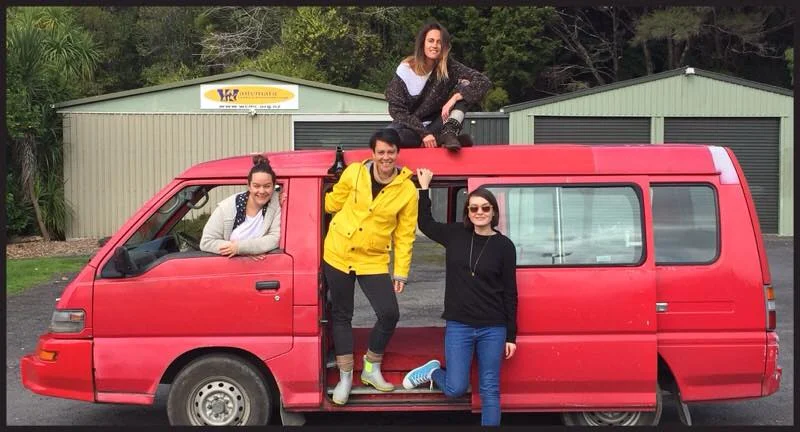Miriama McDowell isn’t one to shy away from heavy roles, having won an award for her part in The Great Maiden’s Blush, as well as playing Sandy in The Dark Horse and Donna in mini-series Hope and Wire about the Christchurch earthquakes. She plays the role of Bash in new movie Waru, which hones in on a variety of issues around child safety.
So Miriama, can you tell us about the film. What's it about and why did it happen?
“Waru is a film made up of eight short films that are all somehow connected to the death of a boy, called Waru, at the hands of his whanau. Nine different wahine film makers responded to the theme of child abuse amongst Maori, in whatever way they wanted to. There are stories in here about neglect, poverty, loss of language and also stories of heroism and hope.”
Your character, Bash, appears in the last ten minutes and is one of those stories of ‘hope’. Can you tell us about her?
“Bash is a mother in a small rural community. She is on a journey of healing, as a recovering alcoholic. In the film she is determined to save some kids who are suffering abuse at the hands of their caregivers. Her little sister, Titty, is trying to convince her not to do anything, but she has had enough of standing by, and nothing is going to stop her.”
Miriama, (centre in yellow), and some of the cast and crew of Waru during filming
What's the important message you think Bash's character delivers?
“There is an amazing moment in the film where Bash turns around and barrels the camera. That is, she looks straight down the lens. It’s like she is looking straight into the eyes of the audience in the cinema, and willing them to be active, not complacent. It’s a spine tingling moment.”
What would you like film-goers to take away from Waru?
“The best art doesn’t offer an answer, but it forces you to question, sift, feel uncomfortable, fight, be curious, demand answers. To ask things of yourselves and ask others questions. I hope Waru does all of this. I also hope that it inspires women to keep telling stories, especially Maori women. One of the most inspiring things for me is watching all of those incredible Maori actresses play a lead in their own film, an opportunity that very few of us get, and then seeing the names of the wahine Maori directors at the end.”
What change do we need to see in New Zealand to keep children better protected?
“I often ask myself “What can I do?” And the question flares up within my whanau too every so often. On an individual level I think my answer is similar to Bash’s answer, having an awareness, watching, listening, being prepared to act when something doesn’t feel right. I fear that one of our greatest enemies is politeness - we don’t want to be wrong, we don’t want to offend someone. A friend had an experience where they were in trouble in a public space and no one came to offer her and her children help, not even to ask if she was ok, and I made a choice at this time to really see and listen in a way that I hadn’t before. It changed the way I was in the world. But it is hard to do this consistently.”
Finally, despite the subject matter, did you enjoy filming Waru?
"I really love making theatre because of the immediacy of it. All you need is some actors, an idea, and a space, and in a few days you’ve got a play. Sometimes film feels so hard, all of the gear and crew and funding and daylight that you need to take an idea and make it, and then there’s the post production phase that can take years if you don’t have money. Waru was different. The producers really flipped the film making process on its head, especially during the development. The directors met on Waiheke Island for a week, and by the end of the week they had all written the first draft of their films. Within a year the footage was “in the can”. The filmmakers worked collaboratively and collectively, and you can feel this in the wairua of the film itself.”
Waru is currently showing at Event Cinemas in Manukau


